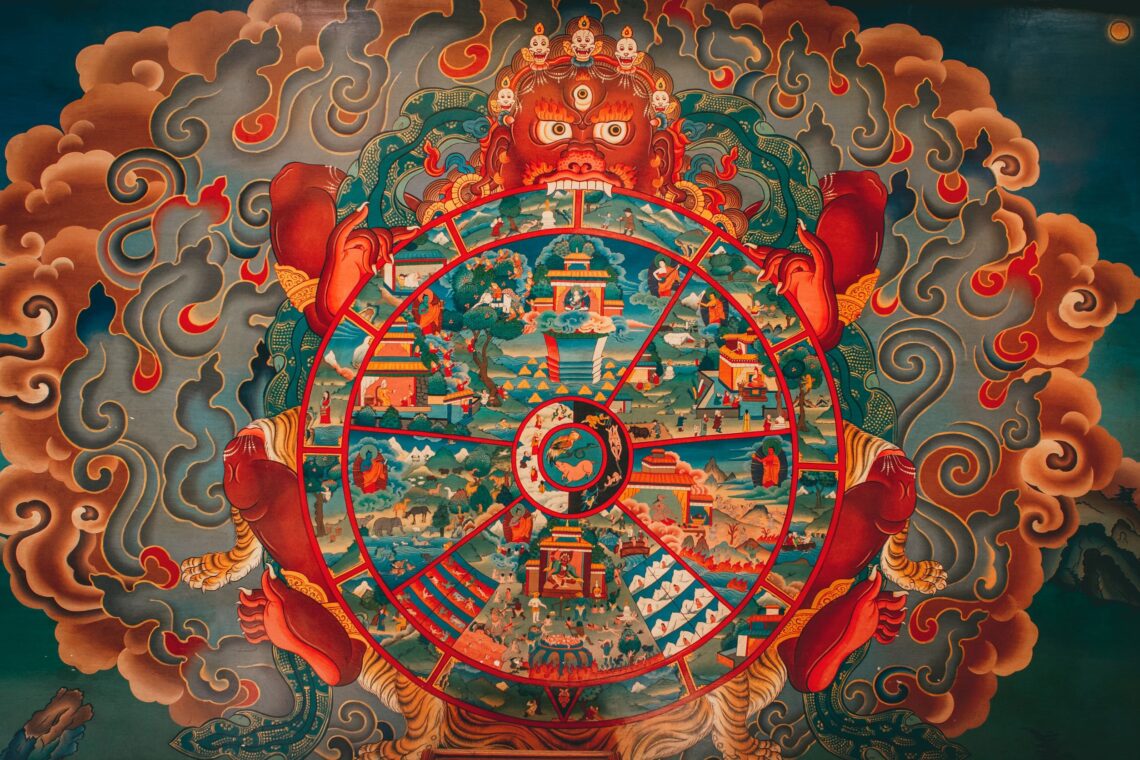
Nothing “Really” Matters
Notice the word in parenthesis (it wouldn’t let me italicize it) “Really”. That word, generally, adds nothing to a sentence. For example, instead of saying, “He is a really good person, we should just say, “He is a good person”? Really is superfluous here.
What People Want
But sometimes really does add something. Huston Smith, in his book, The World’s Religions, in the section on Hinduism, begins with a subsection called “What People Want”. Hinduism says people want “pleasure”, and as they get older, they extend that want to “worldly success.”
Smith says there is nothing wrong with these wants, in fact they are quite natural. The problem is; they are limited.
Pleasure is temporary and is often accompanied with its partner, “pain”. Worldly success is longer lasting than pleasure, but can be stressful, especially if we don’t attain the level of success we desire, or we are never satisfied with the level of success we have attained.
What People Really Want
Then Smith follows that with a subsection entitled “What People Really Want”. Here, the word really is important. Often we think we want something, but when we get it, we realize it isn’t what we really want. It is in this guise that I am using the word, really.
I want to, as Smith does, deal with what matters on two levels: the relative and the absolute. The relative level refers to our everyday life and what the Hindus say people think they want, which is pleasure and worldly success. But on the absolute level, Hindus believe that what people really want is “infinite being” (we don’t want to die), “infinite knowing” (we want to understand) and “infinite joy” (we don’t want to feel bad).
On the Relative Level, Things Matter
In my scenario, when I say, “Nothing Really Matters” I am not referring to the relative level, or the scope of everyday life. On this relative level, how we behave and the choices we make, matter. If I’m violent to someone, it matters. If I’m kind to someone, it matters.
Whether we deal intelligently with climate change or we allow it to end our life on this planet, matters. Everything on the relative level, matters.
On the Absolute Level, Nothing Matters
However, on the absolute level, none of it matters. Our physical life on this planet is not real. It’s temporary and changing. Nothing lasts. Physical objects, including our own bodies, are not what they appear to be.
If we burrow down into the make-up of all physical objects, we see that everything is made up of atoms, which in turn are made up of subatomic particles that ultimately reduce down to emptiness or nothingness. In short, there is no there, there.
At this level nothing matters. The physical world is just the show between the ears. It’s what the Hindus call maya or illusion. It means that what we perceive as the outer world is not what is really there. We don’t see or experience the world as it really is.
Life is lila or God’s Play
As such, the Hindus call this life, lila, or God’s play. People acting in a play or a movie know the role they are playing is not real. They are play-acting, pretending its real. If someone gets shot with a gun and drops dead on the stage, everyone knows they aren’t really dead. When the play or the movie ends they get up and go home.
According to Hinduism, our life on this planet is like being in a play. But if that is so, does it mean that nothing that happens in our everyday life matters either? Are we then saying we can shoot people on the street and it doesn’t matter? Do I now have the license to rape, maim, steal and kill because none of it is real?
The short answer is “No”! That is not the conclusion Hinduism wants us to draw. Even if we are actors in a stage-play, just because the play is not ultimately real, doesn’t mean we don’t have to take our role seriously. No actor would do that. They take pride in their work. The audience would boo them off the stage if they gave a shoddy performance. So, how they perform their roles, matters.
Hinduism says viewing life as lila or God’s play, means we each have a role to play in this cosmic drama, and just like the actors on stage in a play, we need to give the best performance we can for ourselves. As long as we do that, then nothing really matters. That is all we can do. How the rest of the cosmic drama plays out, or what others think is irrelevant. Those things don’t matter as long as we become the best person, and give the best performance in this life we can.
Krishna and Arjuna
In The Bhagavad Gita, the main character Arjuna, a warrior, is tasked with winning the throne back from his evil uncle who usurped it from his father.
But as Arjuna looks across the battlefield he sees people he grew up and went to school with. He sees family members, teachers, and friends. He realizes if he carries out his duty and fights, he will end up killing many of those people he has known his whole life, and he despairs.
He tells Krishna, his charioteer, that he can’t do it. He can’t kill all those people. He refuses to fight. Krishna, who is also his advisor, tells him this.
“You speak sincerely, but your sorrow has no cause. The wise grieve neither for the living nor for the dead. There has never been a time when you and I and the kings gathered here have not existed, nor will there be a time when we will cease to exist. As the same person inhabits the body through childhood, youth and old age, so too, at the time of death he attains another body. The wise are not deluded by these changes.”
He then counsels Arjuna further,
“Considering your dharma, you should not vacillate. For a warrior, nothing is higher than a war against evil. The warrior confronted with such a war should be pleased. Arjuna, for it comes as an open gate to heaven. But if you do not participate in this battle against evil, you will incur sin, violating your dharma and your honor.”
Krishna goes on to tell Arjuna that if he doesn’t fulfill his dharma, carry out his inner calling, then he will be ridiculed and shamed by other warriors as a coward, and that, for a warrior, would be a fate worse than death.
Finally, Krishna explains to Arjuna that the most important thing is to do your duty, and not worry about the consequences or “the fruits” of your actions. He says,
“You have the right to work, but never to the fruit of your work. You should never engage in action for the sake of the reward, nor should you long for inaction. Perform work in this world, Arjuna, as a man established within himself—without selfish attachments, and alike in success and defeat. For yoga is perfect evenness of the mind.”
Summing Up
In short, referring back to the point of this article. When I say nothing really matters, that means the outcome doesn’t really matter if we follow our dharma, our inner calling, while living.
In other words, nobody should neglect or reject doing something because they think it won’t be successful or their actions won’t make a difference. We should act for the sake of acting without worrying about the fruits or consequences of our actions. In that case, as long as we carry out our inner calling to the best of our ability, whatever happens after that, doesn’t really matter.
To learn more about the magic of the universe: Click this link: The Magical Universe.
Photo by Raimond Klavins on Unsplash




